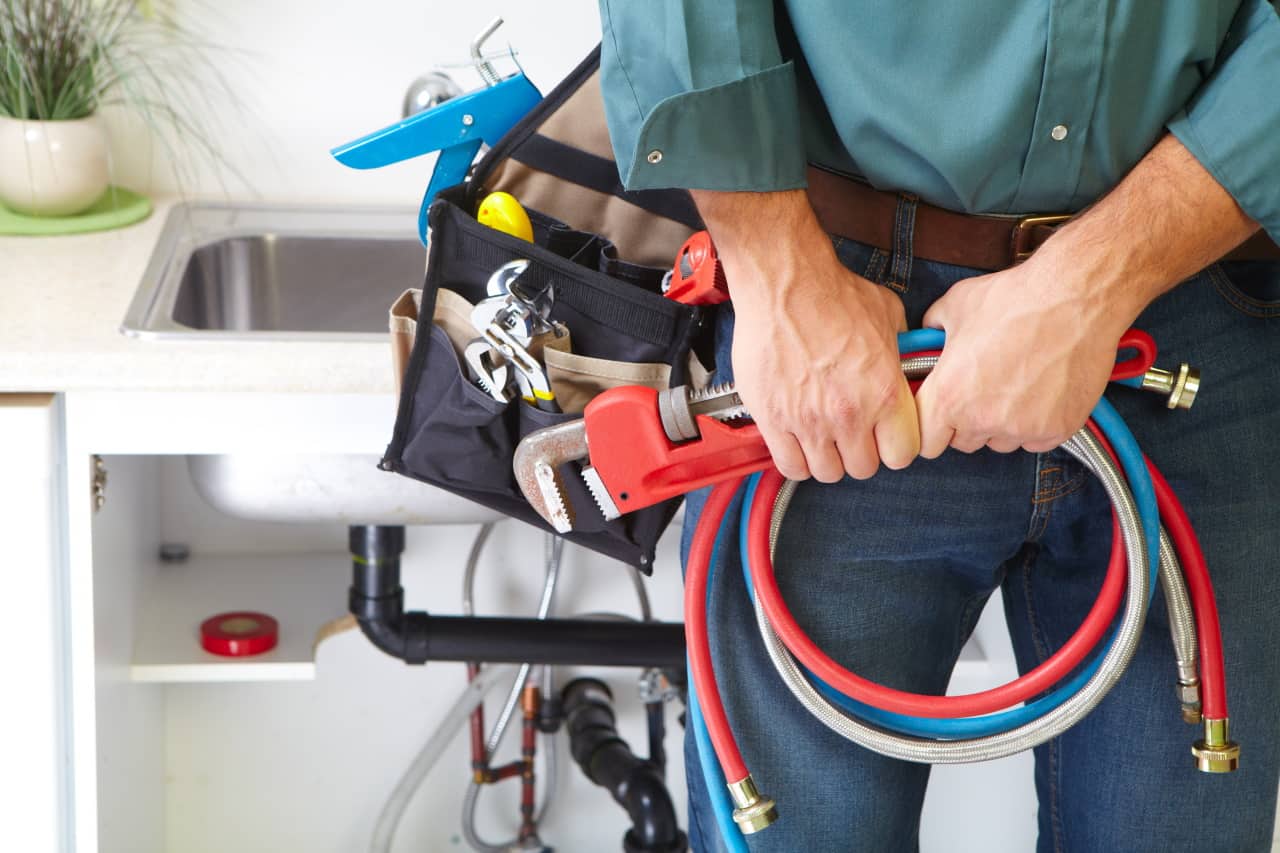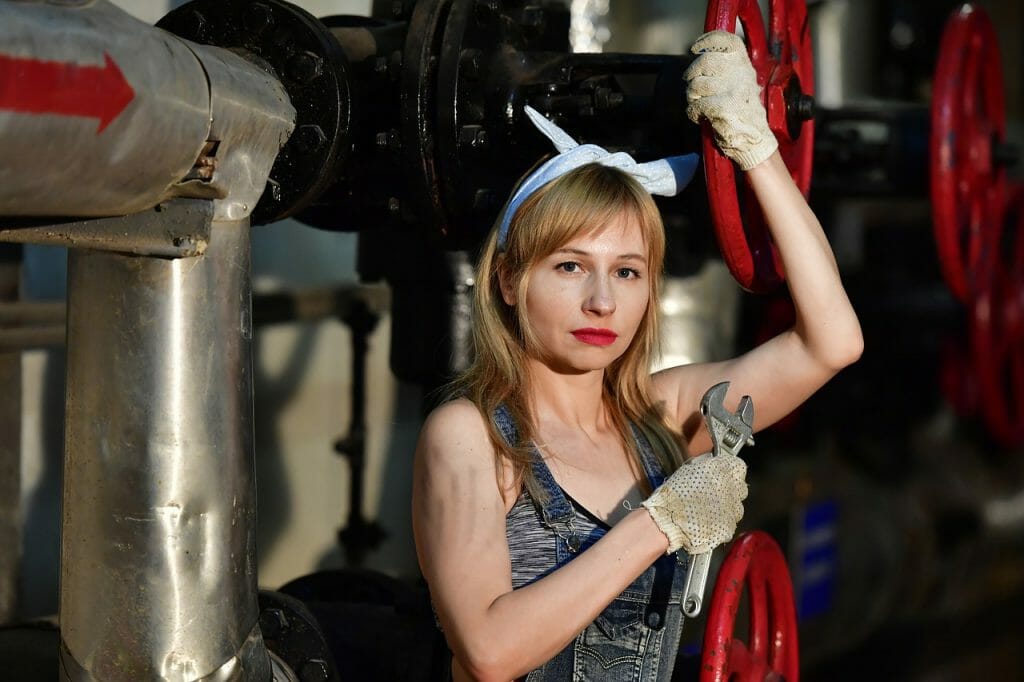
How long does it take to become a plumber? This question is often posed by individuals intrigued by the hands-on nature and practical skills involved in this essential trade. The path to becoming a licensed plumber can vary depending on individual circumstances, educational choices, and the specific requirements of your state. From apprenticeships and educational programs to licensing exams and practical experience, there are several steps involved in pursuing a career in plumbing.
The journey typically involves a combination of classroom learning, on-the-job training, and practical assessments. The duration can range from a few years for apprenticeships to a shorter timeframe for those pursuing vocational or trade school programs. This comprehensive guide will delve into the different aspects of becoming a plumber, providing insights into the time commitment, educational pathways, and career prospects.
Licensing and Certification

Becoming a licensed plumber is a crucial step in establishing a successful career in the plumbing industry. Licensing requirements vary from state to state, and understanding the process is essential for aspiring plumbers.
Obtaining a Plumbing License
Each state has its own unique licensing process. Generally, aspiring plumbers must meet certain prerequisites, including:
- Age Requirement: Most states require applicants to be at least 18 years old.
- Education: Some states may require a high school diploma or GED. Others may accept apprenticeship programs or trade school certifications.
- Apprenticeship: A significant portion of states require a specific number of hours of on-the-job training under a licensed plumber.
- Exam: All states require passing a plumbing exam, which usually includes both written and practical components.
- Background Check: Many states conduct background checks to ensure applicants have a clean criminal record.
Plumbing Exam Requirements
The plumbing exam assesses a candidate’s knowledge and skills in various plumbing practices. It typically consists of two parts:
- Written Exam: This component tests a candidate’s understanding of plumbing codes, regulations, and theory. It covers topics like pipe sizing, water pressure calculations, and plumbing system design.
- Practical Exam: The practical portion requires candidates to demonstrate their ability to perform specific plumbing tasks, such as installing fixtures, connecting pipes, and troubleshooting common plumbing problems.
Voluntary Certifications, How long does it take to become a plumber
While a plumbing license is mandatory in most states, voluntary certifications can enhance a plumber’s credentials and demonstrate their commitment to professional development. The National Association of Plumbing-Heating-Cooling Contractors (NAPHCC) offers several certifications, including:
- Master Plumber: This certification signifies a high level of expertise and experience in plumbing. It typically requires extensive experience, continuing education, and passing a rigorous exam.
- Certified Journeyman Plumber: This certification recognizes plumbers who have completed a formal apprenticeship and passed a comprehensive exam. It demonstrates proficiency in basic plumbing skills and knowledge.
- Certified Service Technician: This certification focuses on the repair and maintenance of plumbing systems. It is particularly valuable for plumbers working in residential and commercial settings.
“Voluntary certifications can give plumbers a competitive edge in the job market, demonstrate their commitment to professional development, and enhance their earning potential.”
Experience and Work Opportunities
While obtaining the necessary certifications and licenses is crucial, practical experience is equally important for aspiring plumbers. This hands-on training allows individuals to develop essential skills, understand real-world applications, and gain valuable insights into the industry.
Types of Plumbing Jobs
The plumbing industry offers a diverse range of employment opportunities across various sectors, catering to different skill sets and interests. Here’s a breakdown of the most common types of plumbing jobs:
- Residential Plumbing: This area involves working on plumbing systems in homes, including installing, repairing, and maintaining fixtures, pipes, and appliances. It often includes tasks like fixing leaky faucets, unclogging drains, and replacing water heaters.
- Commercial Plumbing: This sector focuses on plumbing systems in larger buildings, such as offices, retail stores, restaurants, and hotels. Commercial plumbers install and maintain complex plumbing systems, including water and sewage lines, fire suppression systems, and HVAC units.
- Industrial Plumbing: This specialization involves working on plumbing systems in industrial facilities, including factories, power plants, and refineries. Industrial plumbers handle heavy-duty piping, large-scale equipment, and specialized systems that require advanced knowledge and expertise.
Growth Areas in Plumbing
The plumbing industry is constantly evolving, with new technologies and trends emerging. These advancements create opportunities for plumbers who are adaptable and willing to learn. Here are some of the potential growth areas within the plumbing industry:
- Renewable Energy: As the demand for sustainable solutions increases, plumbers are playing a vital role in installing and maintaining renewable energy systems, such as solar water heaters and geothermal heat pumps.
- Green Plumbing Technologies: Water conservation and energy efficiency are becoming increasingly important. Plumbers are involved in installing low-flow fixtures, water-saving appliances, and greywater systems, promoting sustainable practices.
- Smart Home Technology: The integration of smart home technology is transforming the plumbing industry. Plumbers are installing and troubleshooting smart devices, such as leak detectors, water flow sensors, and automated irrigation systems.
Factors Affecting Timeframe

The time it takes to become a plumber can vary significantly based on individual circumstances and choices. Several factors contribute to the overall timeframe, including education, experience, and personal commitment.
Impact of Education and Experience
The level of education and prior experience plays a crucial role in determining the time required to become a plumber.
- Apprenticeship Programs: Apprenticeship programs typically last four to five years, offering a combination of on-the-job training and classroom instruction. This structured approach provides a comprehensive foundation in plumbing skills and knowledge, allowing individuals to gain practical experience while learning theoretical concepts.
- Trade Schools: Trade schools offer shorter programs, typically lasting six months to two years, focusing on practical skills and techniques. These programs can provide a quicker path to entry-level plumbing jobs, but they may not offer the same level of depth and breadth of knowledge as apprenticeship programs.
- Post-Secondary Education: Some individuals choose to pursue an associate’s degree or a bachelor’s degree in plumbing technology or a related field. These programs provide a more theoretical understanding of plumbing principles and systems, preparing graduates for more specialized roles or management positions within the industry.
Influence of Learning Styles, Work Ethic, and Commitment
Individual learning styles, work ethic, and commitment significantly influence the overall timeframe for becoming a plumber.
- Learning Styles: Individuals with a strong aptitude for hands-on learning and a practical understanding of mechanical systems may find it easier and faster to grasp plumbing concepts and skills. Conversely, those who prefer more theoretical instruction might require additional time to apply their knowledge in practical settings.
- Work Ethic: A strong work ethic and dedication to continuous learning are essential for success in the plumbing profession. Individuals who are willing to put in the extra effort, seek out opportunities for growth, and embrace challenges are likely to progress faster in their careers.
- Commitment: The time commitment required to become a plumber can be demanding, particularly during apprenticeship programs or early career stages. Individuals who are fully committed to their career goals and are willing to sacrifice time and effort are more likely to achieve their aspirations within a shorter timeframe.
Specialization and its Impact on Timeframe
Pursuing specialization in a specific area of plumbing, such as commercial plumbing or HVAC, can influence the time required to develop expertise.
- Commercial Plumbing: Commercial plumbing involves working on larger-scale projects, such as high-rise buildings or industrial facilities. This specialization often requires additional training and experience in areas like fire suppression systems, water treatment, and building codes.
- HVAC: Specializing in HVAC (Heating, Ventilation, and Air Conditioning) requires a deeper understanding of heating and cooling systems, ventilation principles, and energy efficiency. This specialization often involves additional certifications and training in areas like refrigeration, air conditioning, and heat pumps.
Skills and Competencies

Becoming a successful plumber requires a blend of technical skills, problem-solving abilities, and a strong understanding of safety regulations. This profession demands more than just the ability to fix leaky pipes; it involves a comprehensive set of skills and competencies that ensure efficient, safe, and environmentally responsible work.
Understanding Plumbing Codes and Regulations
Plumbing codes and regulations are essential for ensuring the safety and functionality of plumbing systems. These codes dictate everything from pipe sizing and material selection to the installation of fixtures and appliances. Plumbers must stay up-to-date on the latest codes and regulations to ensure their work meets the required standards and avoids potential safety hazards.
- Understanding of local, state, and national plumbing codes: These codes are constantly evolving to reflect advancements in technology and safety practices. Plumbers need to be familiar with the specific codes applicable to their area of operation.
- Knowledge of building codes: Plumbing systems are integrated into the overall structure of a building. Plumbers must understand building codes to ensure their work complies with broader construction regulations.
- Familiarity with safety regulations: Plumbing work often involves working with hazardous materials, such as gas and chemicals. Plumbers need to be aware of and adhere to safety regulations to protect themselves and others from potential risks.
Environmental Considerations
Plumbing work has a significant impact on the environment. Plumbers must be aware of environmental considerations and use sustainable practices to minimize their footprint.
- Water conservation: Plumbers play a crucial role in promoting water conservation by installing water-efficient fixtures and appliances. They must understand the principles of water conservation and advise clients on the best practices for reducing water usage.
- Waste management: Plumbing work often generates waste, such as old pipes and fixtures. Plumbers should follow proper waste disposal procedures to minimize environmental impact.
- Use of environmentally friendly materials: The plumbing industry is increasingly adopting eco-friendly materials, such as low-VOC paints and recycled materials. Plumbers should be familiar with these materials and their benefits.
Physical Demands of Plumbing Work
Plumbing work can be physically demanding, requiring strength, agility, and endurance.
- Lifting heavy objects: Plumbers frequently lift and move heavy pipes, fixtures, and tools. This requires physical strength and proper lifting techniques to prevent injuries.
- Working in confined spaces: Plumbing work often involves working in cramped or confined spaces, such as crawl spaces, attics, and under sinks. This requires agility and the ability to work in uncomfortable positions.
- Standing and walking for extended periods: Plumbers spend a significant amount of time standing and walking on construction sites or in customer homes. This requires good physical stamina and the ability to handle long hours on their feet.
Job Outlook and Career Advancement
The plumbing industry offers a stable career path with consistent demand for skilled professionals. The U.S. Bureau of Labor Statistics (BLS) projects a 5% growth in employment for plumbers, pipefitters, and steamfitters from 2021 to 2031, faster than the average for all occupations. This growth is driven by increasing construction activity, aging infrastructure, and the need for repairs and maintenance.
Salary Expectations
The median annual salary for plumbers, pipefitters, and steamfitters in the United States was $56,330 in May 2022. However, salaries can vary significantly depending on factors such as experience, location, specialization, and employer. Plumbers with specialized skills, such as those working in commercial or industrial settings, can earn significantly higher salaries.
Career Advancement Opportunities
Plumbers can advance their careers in several ways, including:
- Gaining experience and certifications: Plumbers can increase their earning potential by gaining experience and obtaining certifications. For example, becoming a master plumber often requires several years of experience and passing a licensing exam.
- Specializing in a particular area: Specializing in areas like residential, commercial, or industrial plumbing can lead to higher pay and more opportunities.
- Starting their own business: Plumbers with experience and a strong business acumen can start their own plumbing businesses, which can offer greater control over their work and earnings.
Benefits of Becoming a Master Plumber
Becoming a master plumber can provide numerous benefits, including:
- Higher earning potential: Master plumbers typically earn higher salaries than journeyman plumbers.
- Greater job security: Master plumbers are often in high demand, making them less vulnerable to job losses during economic downturns.
- Increased opportunities: Master plumbers are often eligible for more advanced and challenging projects, which can lead to greater career satisfaction.
- More autonomy: Master plumbers may have more control over their work schedules and projects.
Benefits of Starting a Plumbing Business
Starting a plumbing business can be a rewarding career path, offering:
- Control over your work: You can choose your own projects, set your own hours, and build your own clientele.
- Higher earning potential: You can keep all the profits from your work.
- Flexibility: You can work when and where you want.
End of Discussion
Becoming a plumber is a rewarding career path that offers stability, diverse work opportunities, and the satisfaction of contributing to essential infrastructure. Whether you choose to specialize in residential, commercial, or industrial plumbing, the demand for skilled plumbers remains strong, ensuring a steady stream of employment opportunities. The journey may require dedication and perseverance, but the skills and knowledge acquired will equip you for a fulfilling and lucrative career.
Key Questions Answered: How Long Does It Take To Become A Plumber
What are the common plumbing jobs available?
Plumbers work in a variety of settings, including residential, commercial, and industrial properties. They may install, repair, and maintain water and drainage systems, fixtures, and appliances. Some plumbers specialize in specific areas, such as water heater installation, drain cleaning, or gas line work.
Is it difficult to find plumbing work?
The demand for skilled plumbers is generally high, especially in areas with growing populations and infrastructure projects. However, the availability of jobs may vary depending on the local economy and the specific plumbing specialties in demand.
What are the typical salary expectations for plumbers?
Salaries for plumbers can vary based on experience, location, and specialization. According to the U.S. Bureau of Labor Statistics, the median annual salary for plumbers in 2021 was $56,330. Experienced plumbers with specialized skills or those working in high-demand areas may earn significantly more.





